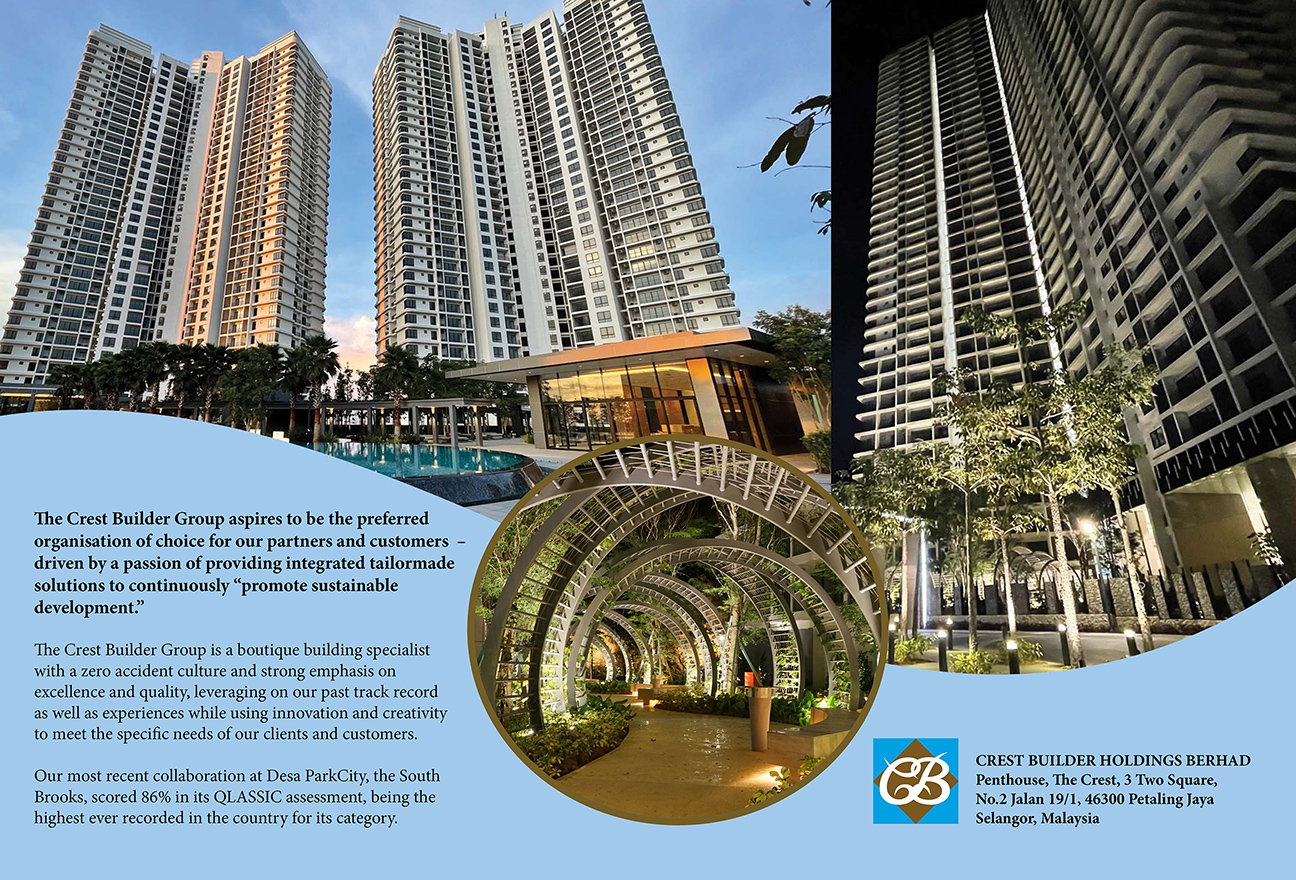When master-plan community Desa ParkCity was first unveiled in Kuala Lumpur in 2002, it was already ahead of its time. The 191-hectare development was thoughtfully planned out to offer its residents open green spaces and a vibrant, self-contained community in the heart of the city. Since then, Desa ParkCity has won countless awards and has become one of the most sought-after residential areas in Kuala Lumpur.
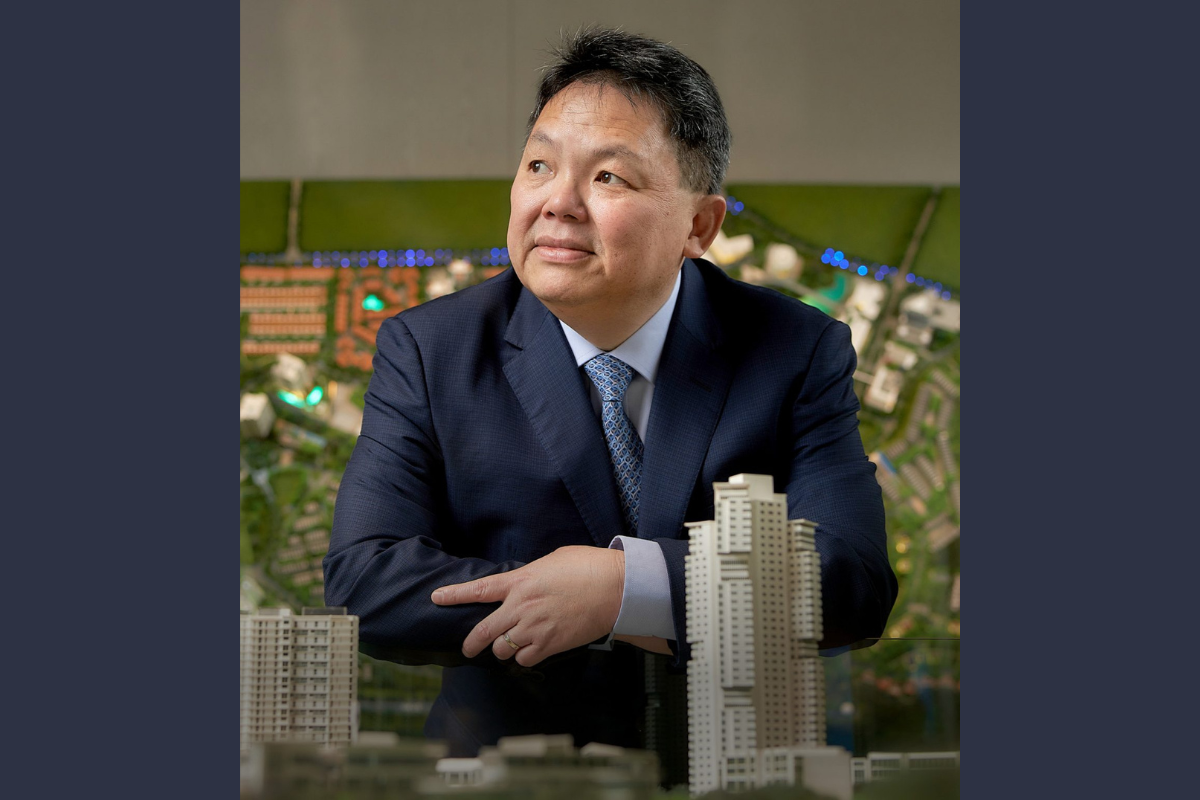
This year, the township was awarded one of the 13 prestigious Urban Land Institute Asia Pacific Awards for Excellence, and was the recipient of the Malaysia Best Sustainable Landscape Award at the The Edge Malaysia Best Managed & Sustainable Property Awards 2022, where it also picked up the esteemed Editor’s Choice Award – Malaysia’s Exemplary Sustainable Township 2022.
The driving force behind Desa ParkCity is property development company ParkCity with Group CEO Joseph Lau at its helm. Since taking on the role in 2016, Joseph has been instrumental in elevating Desa ParkCity to its current glory.
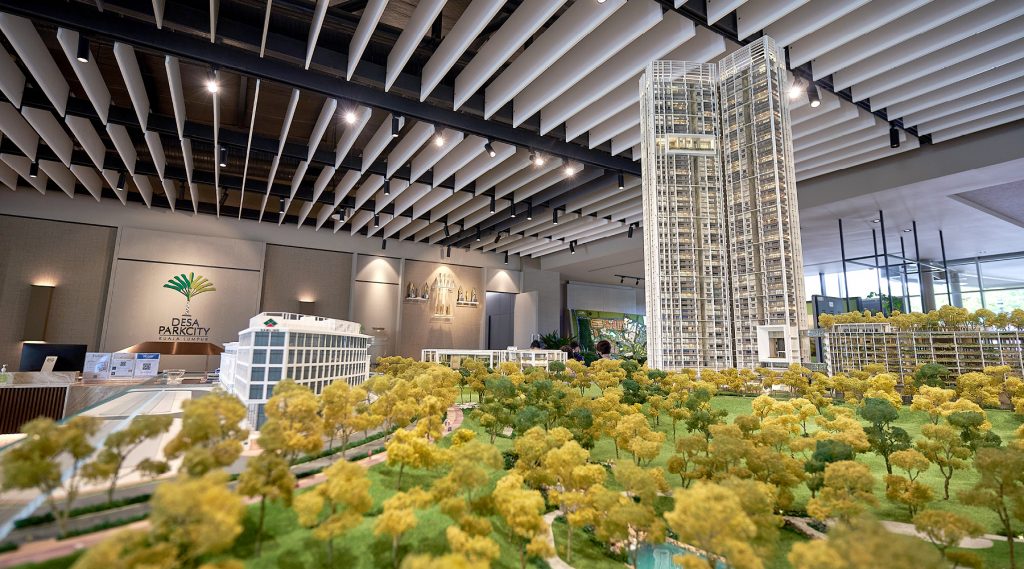
“We’ve always taken a holistic approach and focused on the wellbeing of our residents and on creating communal social spaces. But during the pandemic, we really looked into what people wanted,” Joseph explains.
“We knew they didn’t want to live in homes that were 80 square metres. We launched a 537-unit condominium project called Park Place in Desa ParkCity during the pandemic and we had sales over 90 per cent. We were taken aback.”
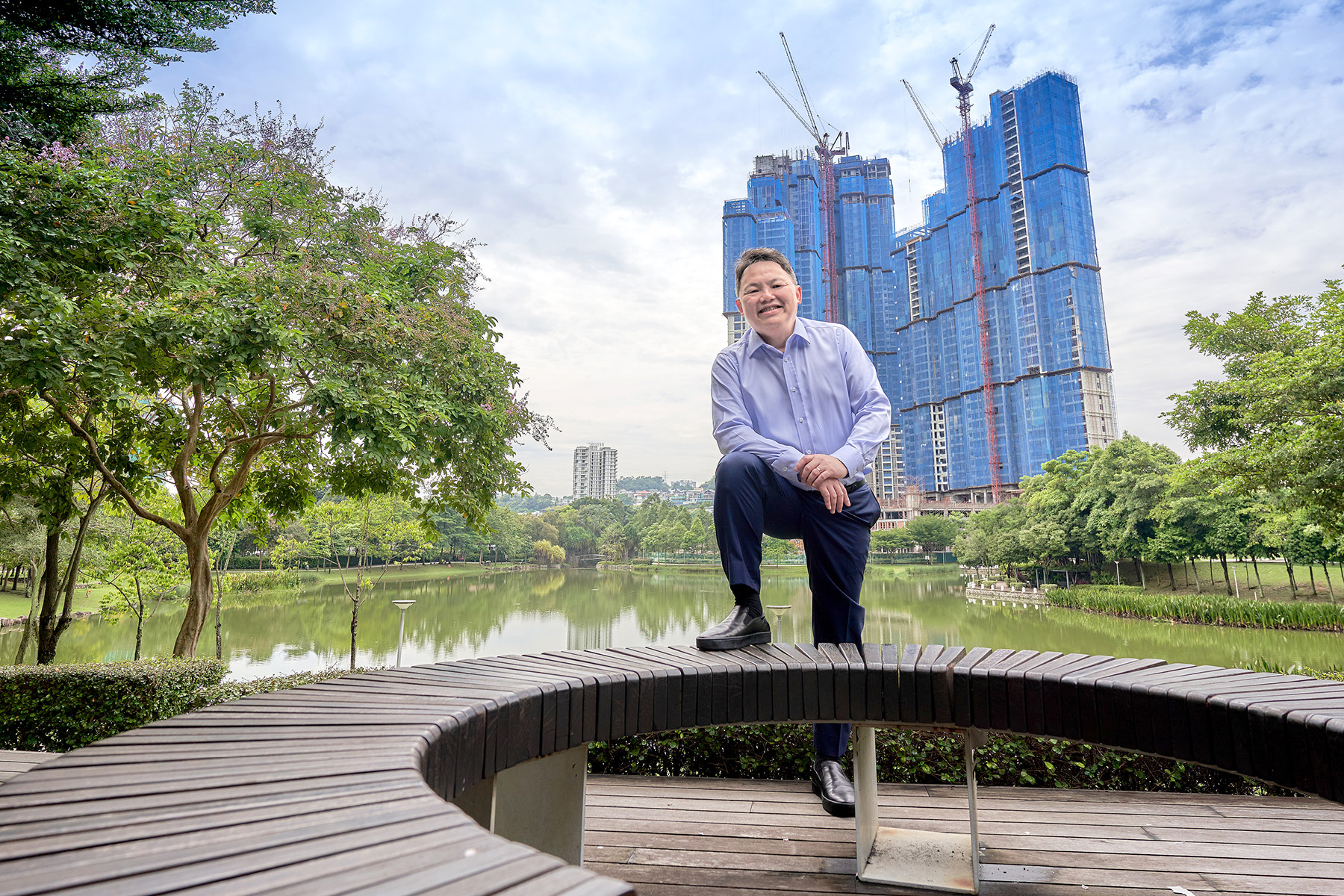
As a developer, the most important thing is to be relevant to the consumer.
Long-term innovation
The COVID-19 pandemic also wasn’t enough to stop ParkCity from continuing to develop sister project ParkCity Hanoi in Vietnam and acquiring new land in Malaysia, Vietnam and Borneo. “We’re in the process of planning and we’ll hopefully start putting new townships up in the next year,” Joseph says. “Our focus is on many master plans.”
A commitment to the environment is at the heart of all of ParkCity’s developments. “We have a lot of green spaces,” Joseph explains. “ParkCity has been here for a while and we continue to improve it. The new townships will definitely be a lot more sustainable and technology driven. If you don’t allow for it and think forward, it won’t happen.
“We’re looking at 50 per cent of the car parks being EV stations in three to four years because it’s where the world is heading. We need to embrace technology for the young and focus on sustainability.”
ParkCity has also started building schools in its communities. “We have The International School at ParkCity which is expanding to cater to strong demand in Kuala Lumpur,” he says. “With the population growing in our township, the demand and need for schools is there. We don’t just build bricks and mortar; we’re building a holistic community.”
Joseph admits that achieving ParkCity’s growth goals isn’t without its challenges. “There’s geopolitical instability, supply chain disruption, the rising cost of living and interest rates that dampen consumer sentiment, and the higher cost of materials and labour that have an impact on the company,” he says.
“But when we put in a township, we look at the long-term. There are ups and downs, but you need a long-term innovative strategy and to be adaptive to the market. As a developer, the most important thing is to be relevant to the consumer.”
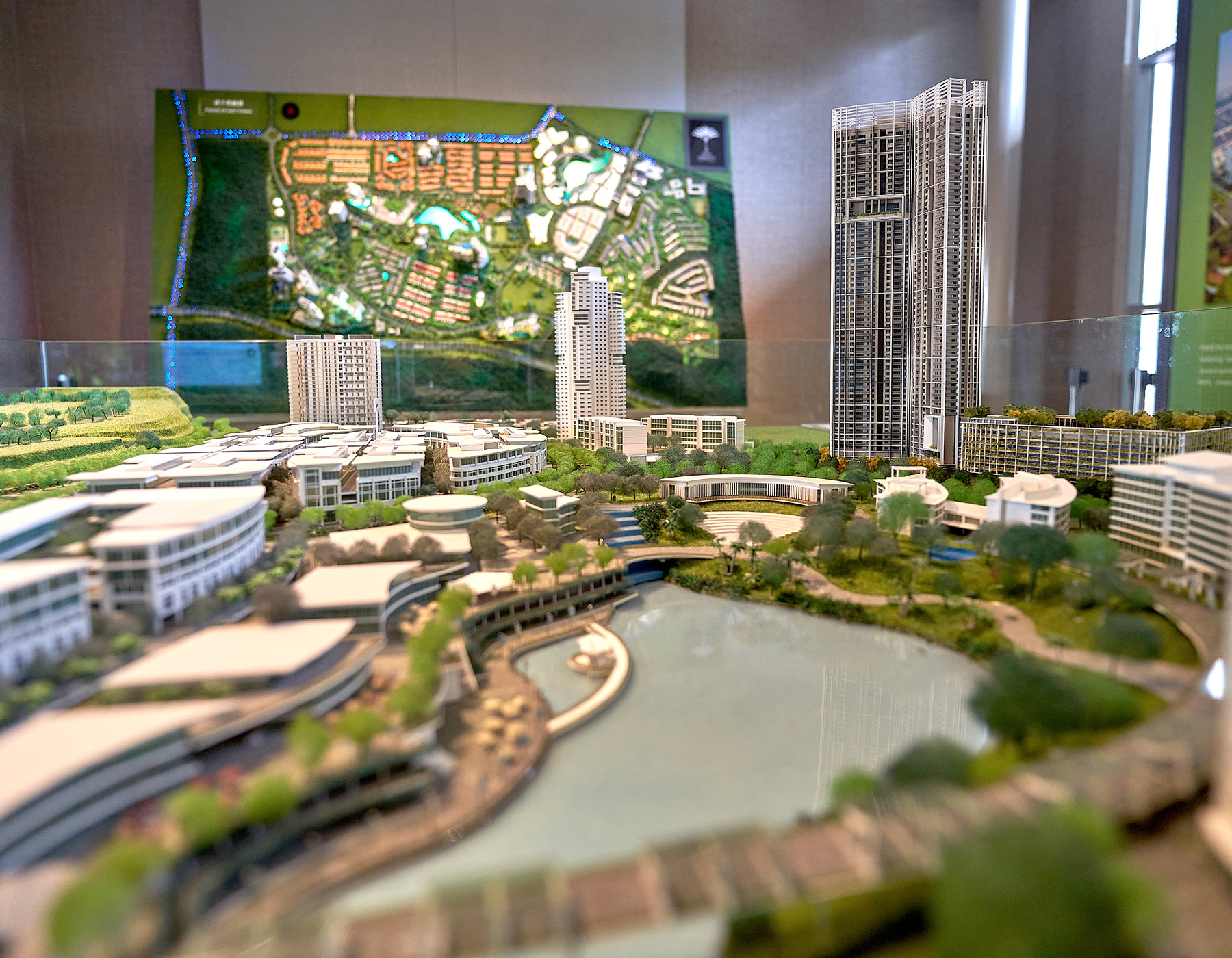
Fast Facts
• ParkCity’s current master-plan townships include Desa ParkCity in Kuala Lumpur, Marina ParkCity in Miri, ParkCity Eastwood in Miri and ParkCity Hanoi in Vietnam.
• Desa ParkCity is the company’s flagship community township and includes residential buildings, several parks, man-made lakes, an international school, a shopping centre, a sport centre and more.
• The company’s developments are anchored on five pillars: Family, Neighbourhood, Community, Connectivity and Convenience.
A people-first approach
While ParkCity’s resilience through turbulent times is impressive, Joseph is quick to point out that he couldn’t have done it alone. “It’s a whole ecosystem,” he says. “I’m not more important than anyone else. You can have the best idea, but without the right people, and without trusting them to do their jobs, it won’t happen. From the cleaners to the drivers to the project managers to the security guards, they’re all partners in the ecosystem.”
For this company structure to work effectively, Joseph believes an open and transparent management style is critical. “Everything we do is communicated very clearly from top management down to the lowest level to ensure operational efficiency,” he explains. “Everyone has a strength and each person will make a difference.”
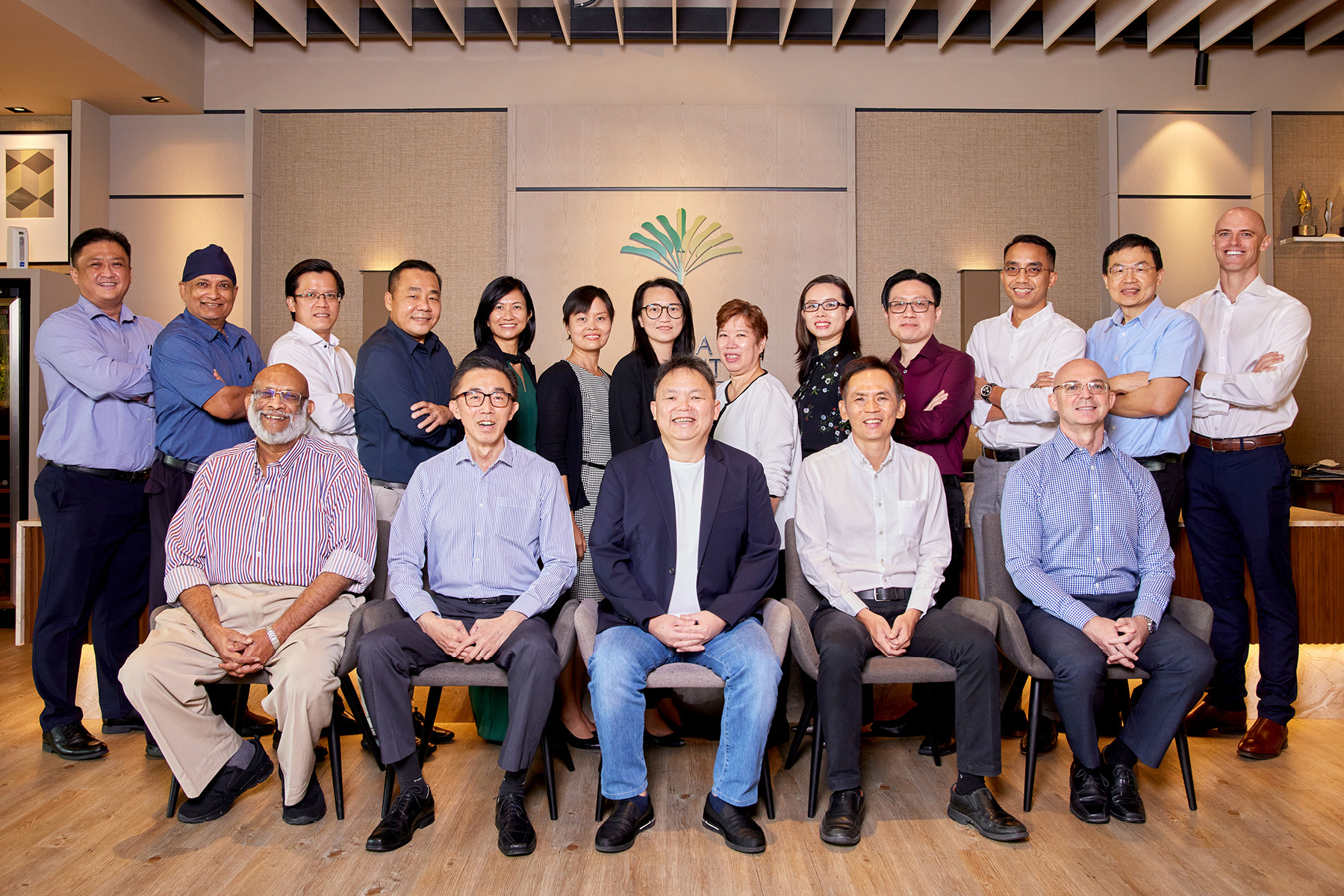
Everything we do is communicated very clearly from top management down to the lowest level to ensure operational efficiency. Everyone has a strength and each person will make a difference.
ParkCity also puts a lot of energy into maintaining strong partnerships with its contractors and suppliers. “We treat our suppliers as partners,” Joseph assets. “Their problems are our problems. We sit down with them and find a solution jointly. It’s only through this conscious and continuous engagement that we can find a solution that’s in everyone’s best interests.”
Even the community residents are treated like partners in the ParkCity ecosystem. “We know that some of our buyers are putting their whole life savings into their home,” says Joseph. “We try to understand them and help them. As a group, we’re stronger than trying to do it by ourselves.”

